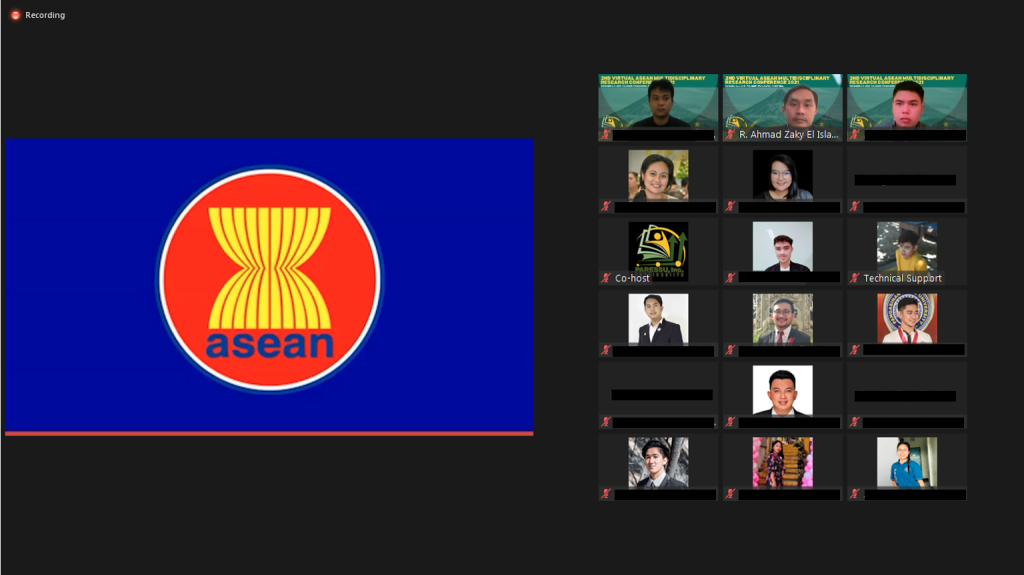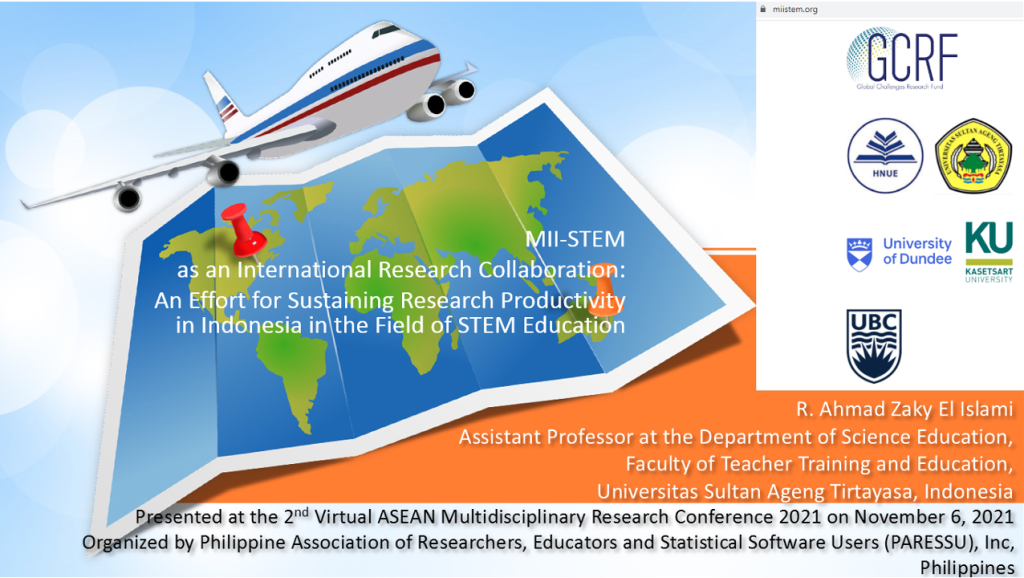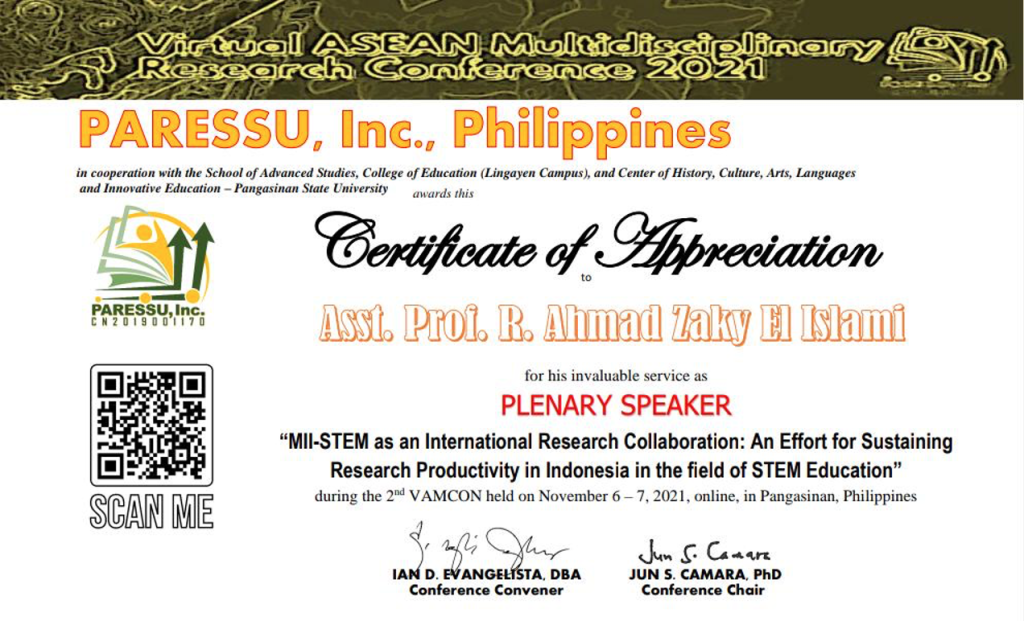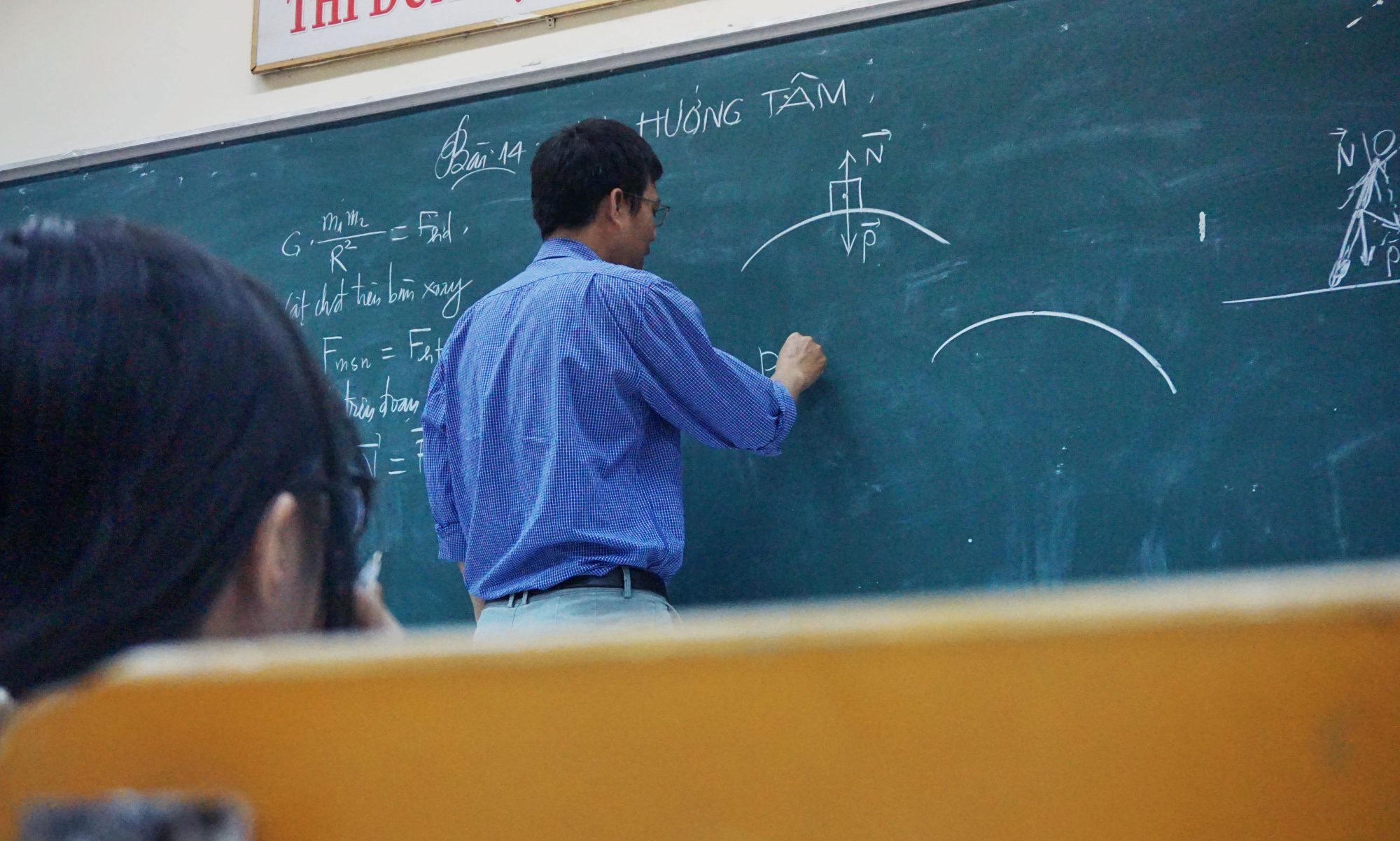One of the countries leads, Asst. Prof. R. Ahmad Zaky El Islami was invited as a plenary speaker to talk about MII-STEM at the 2nd Virtual ASEAN Multidisciplinary Research Conference 2021 on November 6, 2021.



Asst. Prof. R. Ahmad Zaky El Islami was invited as a plenary speaker to talk about MII-STEM at the 2nd Virtual ASEAN Multidisciplinary Research Conference 2021 on November 6, 2021. This conference was organized by the Philippine Association of Researchers, Educators and Statistical Software Users (PARESSU), Inc., in cooperation with Pangasinan State University in the Philippines. Asst. Prof. R. Ahmad Zaky El Islami was invited to talk about the efforts to sustain research productivity in Indonesia and presented MII-STEM as an International Research Collaboration: An Effort for Sustaining Research Productivity in Indonesia in the Field of STEM Education. He said that the MII-STEM project was started in 2019 by developing a proposal via email among ASEAN researchers. It was submitted by PI, Prof. Samia Khan, Ph.D. for internal grant funding from the Global Challenges Research Fund (GCRF) in the UK. The funded research began in 2019. He also said that after the announcement of successful funding, researchers conducted online international meetings using Zoom. Three to four meetings were carried out in order to prepare for an in-person symposium at the University of Dundee, Scotland, UK. In June 2019, all researchers met at the University of Dundee to present the science education or STEM education curriculum in each country. Each country contributed to a country profile using a template created by the project manager. The country profile was laminated on a poster and used for discussion and talking points throughout the week-long visit. Additionally, they collaboratively made a draft of a proposed framework for MII-STEM.
Furthermore, Asst. Prof. Zaky El Islami discussed design sprint and design research to refine the MII-STEM curriculum. He explained three phases of the research, including a pilot study of the impacts of the mii-STEM curriculum on teacher education in Indonesia, followed by an implementation in Thailand, and an implementation in Vietnam. The outputs of this research collaboration are journal publications and papers presented at international conferences. A paper is accepted by Asia-Pacific Social Science Review, an international journal in Q2 available on https://scimagojr.com in 2020 and Q1 based on the CiteScore available on https://scopus.com in 2021.
Many audiences were very interested in learning more about MII-STEM. Although it is challenging to respond to all questions from participants because of the limited time, the moderator said that the audience can send an email to ask more questions. At least five questions were answered in the presentation including: What is the MII-STEM? Is it the same as the MII-STEM approach in every country that participated in this project? Are you intending to introduce it to the Philippines? What is the requirement to be involved? Is it possible to implement it in the Philippines? Can MII-STEM be implemented in secondary school? What is the effectiveness of the MII-STEM on students learning?
El Islami answered that MII-STEM is a unique emphasis on Models and Modeling, Inquiry, and Integrated STEM Education. The MII-STEM curriculum was developed by all researchers together, so the MII-STEM was taught similarly in each country though in one country it was taught amongst working teachers in the first iteration. Additionally, El Islami said that the MII-STEM curriculum aims to be made available to additional ASEAN countries. Maybe in the future, this team will include a Philippines scholar to implement this MII-STEM curriculum. Furthermore, El Islami said that the MII-STEM curriculum that is being developed now for Indonesia is for undergraduate students to foster skills to develop models; however, for the MII-STEM 2.0 in the next year, the project will be implemented at the school level by inviting working science teachers from Indonesia, Thailand, and Vietnam to attend a mii-STEM PD program using an online platform. MII-STEM 2.0 will be developed by using a free online platform and for be intended for the benefit of working science teachers.
